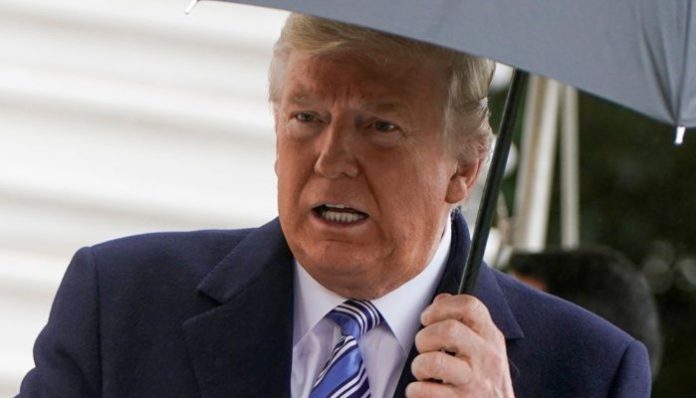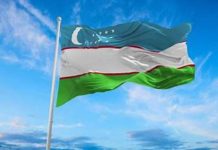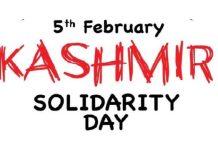Trump remains a polarizing figure internationally, with a legacy in South Asia deeply entangled in transactional diplomacy and broken promises. To nominate him now, in the wake of the Israel-Gaza atrocities, escalating U.S.-Iran tensions, and Trump’s own mounting legal and political controversies, is not just bad diplomacy; it is disastrously timed, further isolating Pakistan from both moral credibility and regional relevance.
Abdul Waheed
Politics may often be transactional, strategic, and cold. It calculates in currencies of power and speaks in the sterile language of interests. But our perception, what we remember, what we judge, is rooted in conscience. It lives in the moral weight of human suffering. It hears the screams buried beneath rubble, sees the broken bodies of children, and refuses to forget what politics wants us to ignore.
We may not control the strategies of states or the closed-door deals of empires, but we reserve the right to judge. To name violence when it is masked as diplomacy. To expose cruelty when it is celebrated as strength. And we reserve the right to speak when justice is mocked by those who claim its name.
To propose the nomination of Donald Trump for the Nobel Peace Prize is not just a moral error, it is an obscene betrayal. It is to reduce a once-sacred recognition of peace into a transactional prize for brute power.
Trump is not a man of silence or neutrality. He did not merely look away from Israel’s mass slaughter of civilians in Gaza, but actively endorsed it. He justified the bombings of hospitals, apartment blocks, and refugee camps. He offered Israel unconditional support, regardless of the death toll. Under his leadership, U.S. military aid surged, UN ceasefire resolutions were vetoed, and American power was used to shield and enable a campaign that many now recognize as genocide.
On Iran, Trump crossed every red line of diplomacy. His language was not the rhetoric of de-escalation or negotiation. It was the rhetoric of annihilation. He openly threatened the Iranian people, called for the evacuation of Tehran, and urged regime surrender under the looming shadow of destruction. These are not the acts of a peacemaker. They are the brutal footprints of a global warmonger, someone who normalized
ethnic cleansing, empowered occupation, and weaponized fear.
And now, the world has seen Trump’s direct hand in war. Under his presidency, the United States has launched full-scale military strikes on Iran, bombing nuclear facilities at Fordow, Natanz, and Isfahan. Trump confirmed the operations himself, calling them a “success,” and bringing the United States into open participation in the Iran-Israel war. This is formal, declared war with rising civilian and military casualties on both sides, and the region inching toward collapse.
Pakistan’s decision to propose Trump for the Nobel Peace Prize was not only diplomatically immature but deeply discrediting. At a moment when the Muslim world watches Gaza’s children buried under rubble and Iranian cities under siege and strikes, Islamabad chose low level of over principle. There were other, wiser paths, economic engagement, regional diplomacy, strategic restraint, but instead it chose to applaud the very hand that fuels war and chaos.
To nominate Trump is to mock the suffering of Gaza’s children, to legitimize the destruction of Palestinian lives and homes, to silence the agony of displaced families, and to erase the moral boundary that once separated peace from brutality. If such conduct is considered worthy of a peace prize, then one must ask: What would be the signs of a world-class butcher?
At a time when the world watches with concern the rise of authoritarian populism, growing instability in the Middle East, and renewed scrutiny of past U.S. foreign policies, Islamabad’s move feels less like a principled gesture and more like a desperate plea for favor. Trump remains a polarizing figure internationally, with a legacy in South Asia deeply entangled in transactional diplomacy and broken promises. To nominate him now, in the wake of the Israel-Gaza atrocities, escalating U.S.-Iran tensions, and Trump’s own mounting legal and political controversies, is not just bad diplomacy; it is disastrously timed, further isolating Pakistan from both moral credibility and regional relevance.

















